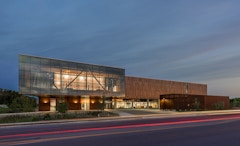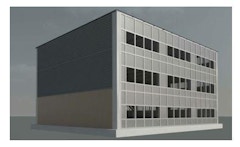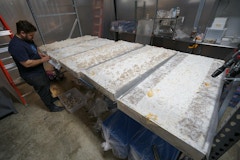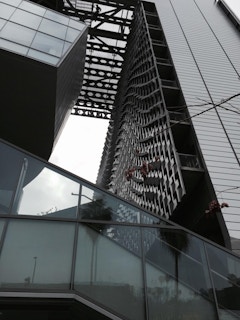
U-Factor Matters in Hot Climates
It is commonly thought that fenestration U-factor is not a key determinant in the performance of facades in hot climates, and generally the focus of

It is commonly thought that fenestration U-factor is not a key determinant in the performance of facades in hot climates, and generally the focus of

Many factors will influence coating selection, but to achieve the desired performance level for a given situation, coatings must be specified based

<p>Electrochromic (EC) glass is a seemingly magical solution to a building’s sun shading problems. A technology that was originally developed about…

This case study focuses on the solutions provided for the Bell Museum at the University of Minnesota. Our design team worked with the client to

Responsive facade system is considered a major component of high-performance building envelope that is capable of responding to environmental stimuli

Glass has become a popular building material that is used not only for windows but also as a load-bearing material. New dimensions of glass panes in

Contemporary building practice represents a disconnect between traditional manufacturing techniques, that favor straight runs and orthogonal

To ensure the safety of U.S diplomatic personnel overseas, the U.S Department of State (DoS) has developed facade retrofits capable of resisting high

<p>Developments in performative computational analysis, mass customization, and complex form manipulation revolutionized building envelope design…

<p>High-rise buildings in growing cities could become more vulnerable to variations in wind flow due to the continuous changes in urban topology. The…

Today's sustainability in architecture takes into consideration the complete life cycle of buildings and their components, from resource harvesting

This paper examines two profoundly different design approaches: one, herein called ‘autonomous’, where the building’s design is governed by internal

Facades play a relevant role in the search for a more sustainable approach to modern architecture. The amount of embodied and operational energy can

This abstract proposes that architectural facade design over the last 60 years has convulsed in light of two disruptions: air spaces which create

The European building stock is mainly constituted by highly energy demanding buildings. The only way to a more sustainable and decarbonized building

Solar shading devices are required to find a trade-off between conflicting requirements: Protection from excessive solar gains and glare, daylight
Climate change effects are causing an increase in extreme wind events’ frequency and severity, worldwide. Regions that previously were not prone to

Resiliency is the capacity of a building (or building component in the case of the facade) to support building functionalities during extreme events

<p>Ever-increasing performance requirements in the latest version of the energy codes are compelling project teams to consider the thermal…